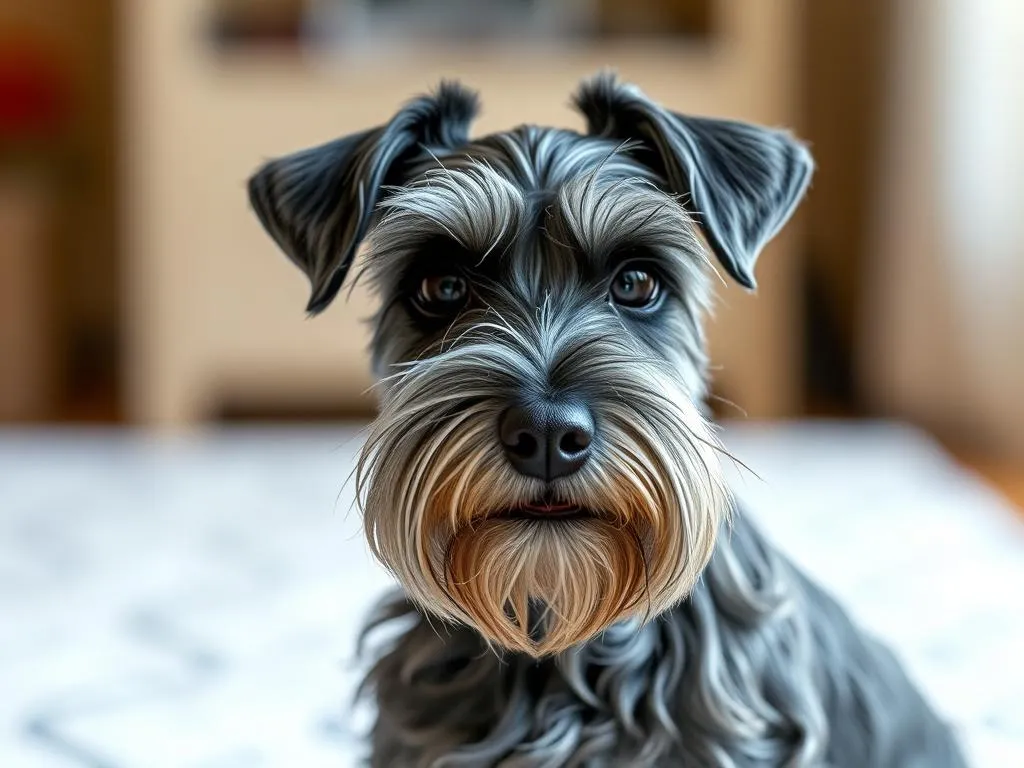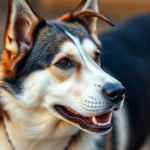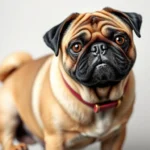
Introduction
Dog breeds play a significant role in our lives, not only as companions but also as family members and working partners. Among the myriad of breeds, the Miniature Schnauzer stands out due to its charming personality and distinctive appearance. Understanding the characteristics of this breed is essential for potential dog owners, as it helps them make informed decisions about pet ownership. This article aims to provide a comprehensive guide to the Miniature Schnauzer, covering its history, physical traits, temperament, health considerations, grooming needs, exercise requirements, training tips, living arrangements, and advice on choosing a puppy.
History of the Miniature Schnauzer
The roots of the Miniature Schnauzer can be traced back to Germany, where it was developed in the late 19th century. The breed evolved from larger Schnauzers, which were primarily used for herding and guarding. Breeders sought to create a smaller version that could serve as a companion dog while still retaining the qualities of its larger ancestors.
Ancestry and Early Uses
The Miniature Schnauzer is believed to have descended from a mix of several breeds, including the Standard Schnauzer, Affenpinscher, and possibly the Poodle. In its early days, this dog was utilized as a ratter on farms, helping to control the rodent population. Its intelligence and tenacity made it an excellent choice for this task.
Recognition by Kennel Clubs
The Miniature Schnauzer gained recognition from various kennel clubs over time. The American Kennel Club (AKC) officially recognized the breed in 1926, and it has since become a popular choice for families and individuals alike. Other organizations, such as the United Kennel Club (UKC) and the Fédération Cynologique Internationale (FCI), have also recognized the breed, contributing to its global popularity.
Physical Characteristics
The Miniature Schnauzer is a small but robust dog, known for its distinctive appearance and wiry coat.
Size and Weight
On average, Miniature Schnauzers weigh between 11 to 20 pounds and stand about 12 to 14 inches tall at the shoulder. Their compact size makes them suitable for various living environments, including apartments and houses.
Coat and Color Variations
One of the defining features of the Miniature Schnauzer is its double coat, which consists of a harsh outer layer and a soft undercoat. This breed comes in several color variations, including:
- Salt and Pepper
- Black
- Black and Silver
- White
The texture and grooming requirements of the coat are crucial for maintaining the dog’s health and appearance.
Distinctive Features
The Miniature Schnauzer is easily recognizable due to its unique facial hair, including a bushy beard and eyebrows. Its rectangular body structure and sturdy legs contribute to its overall appeal and functionality.
Temperament and Personality Traits
The Miniature Schnauzer is known for its friendly and spirited temperament. This breed is intelligent, loyal, and often described as having a larger-than-life personality.
General Temperament
Miniature Schnauzers are generally outgoing and affectionate, making them excellent companions for families. They tend to form strong bonds with their owners and can be quite protective of their loved ones.
Interaction with Families and Children
These dogs are known for their playful nature, which makes them great for families with children. Their energetic demeanor encourages active play and engagement, promoting a lively household atmosphere.
Social Behavior with Other Pets
While the Miniature Schnauzer can get along well with other pets, early socialization is crucial. They may exhibit a strong prey drive due to their ratting background, so introducing them to other animals should be done gradually and carefully.
Potential Behavioral Issues and Training Needs
Like any breed, Miniature Schnauzers can exhibit behavioral issues if not properly trained. They can be stubborn and may require consistent training methods, especially when it comes to housebreaking and obedience.
Health Considerations
Just like all breeds, the Miniature Schnauzer is prone to certain health issues that prospective owners should be aware of.
Common Health Issues
Some common health concerns for Miniature Schnauzers include:
- Hip Dysplasia: A genetic condition that affects the hip joint.
- Eye Problems: Conditions such as cataracts and progressive retinal atrophy.
- Skin Issues: Allergies and skin infections can occur due to their coat type.
Importance of Regular Veterinary Check-Ups
Regular veterinary visits are essential for early detection and management of health issues. Routine check-ups can help ensure that your Miniature Schnauzer maintains optimal health.
Preventative Care Tips
Preventative care includes proper vaccinations, dental care, and maintaining a healthy diet. Regular exercise also plays a vital role in your dog’s overall well-being.
Grooming Needs
The Miniature Schnauzer requires consistent grooming to maintain its coat and overall hygiene.
Coat Care Requirements
Due to their wiry coat, Miniature Schnauzers need regular brushing to prevent matting. A grooming schedule of at least once a week is recommended, with professional grooming every 4-6 weeks to keep their coat in top condition.
Bathing Frequency
Bathing should be done as needed, typically every 2-3 months, unless the dog becomes particularly dirty. Overbathing can strip the coat of natural oils.
Nail Trimming and Ear Cleaning
Regular nail trimming is necessary to prevent discomfort, while ear cleaning should be part of routine grooming to avoid infections.
Exercise Requirements
Miniature Schnauzers are energetic dogs that need regular exercise to stay healthy and happy.
Daily Exercise Needs
A daily routine of at least 30-60 minutes of exercise is ideal for this breed. Activities can include walks, playtime in the yard, or engaging in dog sports.
Importance of Mental Stimulation
In addition to physical activity, mental stimulation is crucial. Puzzle toys, training sessions, and interactive games can help keep your Miniature Schnauzer mentally engaged.
Impact of Exercise on Behavior and Health
Adequate exercise helps reduce behavioral issues and promotes overall health. A well-exercised Miniature Schnauzer is typically calmer and more well-behaved.
Training and Socialization
Proper training and socialization are vital for a well-adjusted Miniature Schnauzer.
Importance of Early Training
Starting training early sets the foundation for good behavior. Positive reinforcement methods work best for this intelligent breed, encouraging them to learn commands and tricks effectively.
Socialization Tips for Puppies
Introducing your puppy to various environments, people, and other animals is crucial for developing a well-rounded temperament. Puppy classes can be beneficial for socialization and training.
Ongoing Training Recommendations
Even after the initial training period, ongoing training sessions can help reinforce good behavior and keep your dog mentally stimulated. Engaging them in new challenges can prevent boredom.
Living Arrangements
The Miniature Schnauzer is adaptable to different living environments, but certain considerations should be taken into account.
Suitable Living Environments
Miniature Schnauzers can thrive in both apartments and houses, provided they receive adequate exercise and mental stimulation.
Considerations for Families with Children or Other Pets
This breed is generally good with children and can coexist with other pets if properly socialized. Families should ensure that children understand how to interact gently with dogs.
Importance of a Safe Outdoor Space
A secure outdoor area is essential for exercise and play. Owners should supervise their dogs when outdoors to prevent them from chasing after small animals.
Choosing a Miniature Schnauzer
If you’re considering bringing a Miniature Schnauzer into your home, there are several factors to consider.
Factors to Consider When Selecting a Puppy
Look for reputable breeders who prioritize health testing and socialization of their puppies. Adoption from shelters is also a wonderful option, providing a home to a dog in need.
Questions to Ask Breeders or Shelters
When choosing a puppy, ask about the puppy’s health history, temperament, and any specific needs. Understanding the lineage can also provide insights into potential health issues.
Assessing Compatibility with Your Lifestyle
Consider your lifestyle, including your activity level, living situation, and family dynamics. A Miniature Schnauzer is a lively breed that thrives in an active environment.
Conclusion
The Miniature Schnauzer is a delightful companion known for its spirited personality, intelligence, and unique appearance. As potential dog owners consider adding this breed to their family, understanding its characteristics and care needs is crucial. Owning a Miniature Schnauzer can be a rewarding experience for those who are ready for the commitment that comes with pet ownership.
With proper training, socialization, and care, your Miniature Schnauzer can bring joy and companionship into your life for many years to come.









